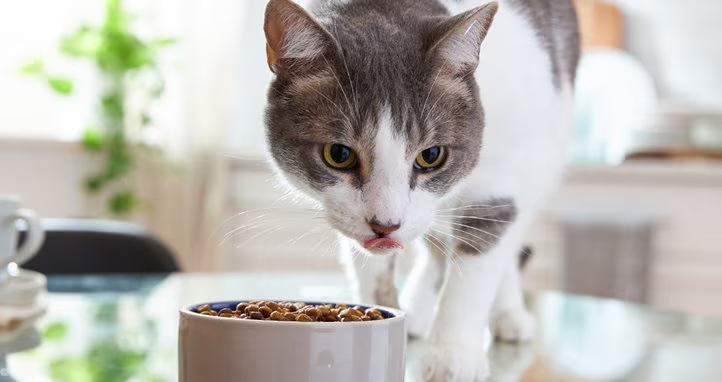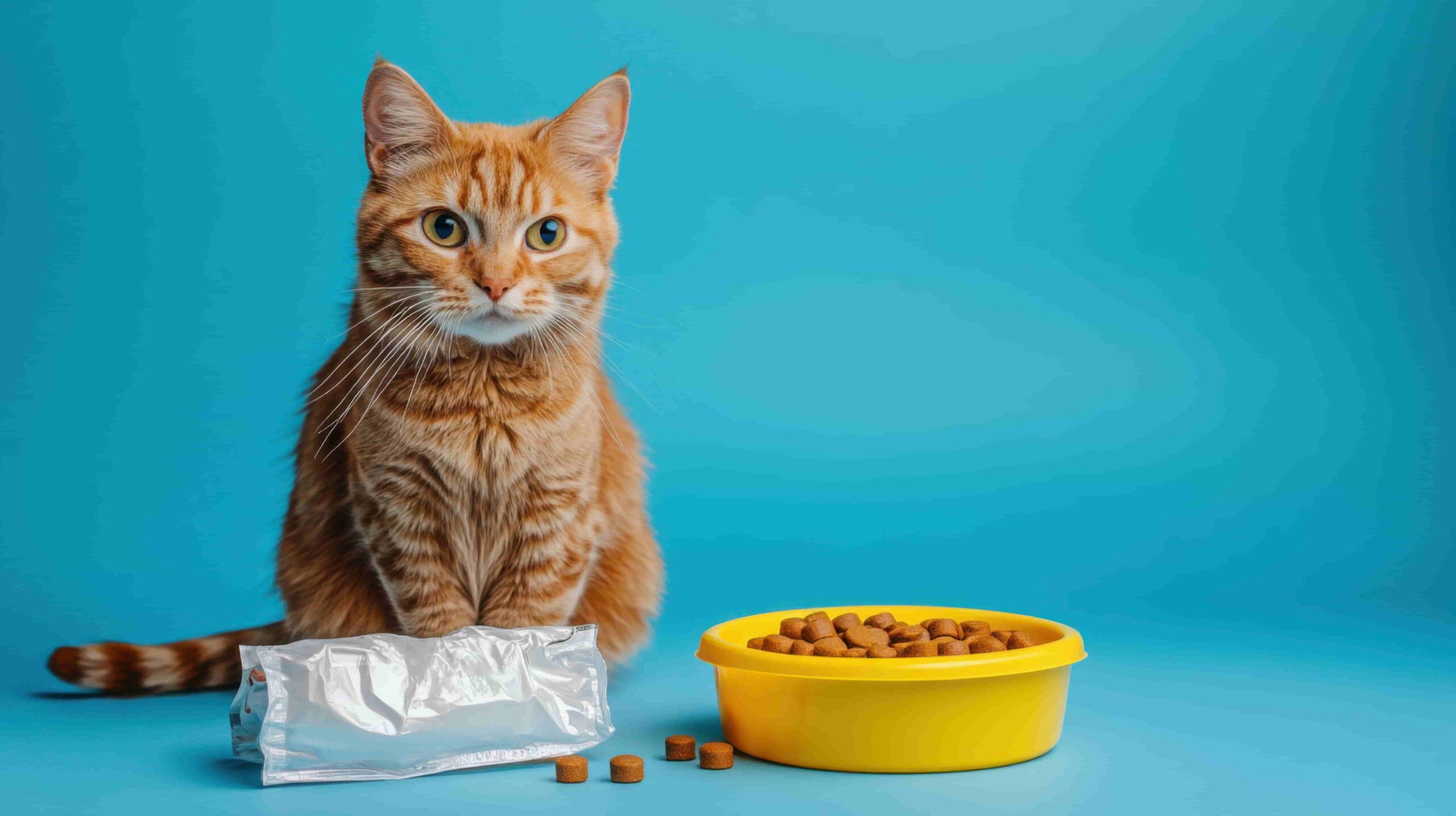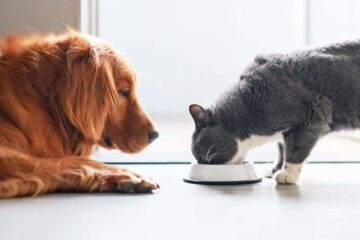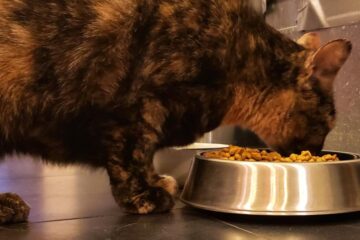Cats are well-known for their independence and unique eating habits, which often confuse their owners and make them go crazy. But what happens if a cat stops eating? How long can cats go without food? Cats can live for a few days without food, but it’s crucial to know their biological limits to keep them healthy. A healthy adult cat can live without food for one to two weeks as long as they have access to water. However, if they do not drink water, this time interval is much shorter. This article discusses different elements of a cat’s eating and drinking habits, including how long they can survive without food and what to do if your cat stops eating.
Table of Contents
How Long Can Cats Go Without Water?
Water is significantly more critical to a cat’s existence than food. A cat can live without food for many days but only with water for up to three to four days. Water is essential for several human activities, including body temperature regulation, digestion, and toxin elimination. A healthy cat can go without food for days, but they should only go with water for a few days. Always keep a tight eye on their water consumption, particularly during times of stress or sickness, since dehydration may kill them faster than starving.
In warmer weather, or if your cat is really active, it may need even more water to remain hydrated. In cats, signs of dehydration include lethargy, sunken eyes, dry gums, and loss of skin elasticity. If you squeeze your cat’s neck skin and it does not snap back soon, dehydration is probable. It is vital to provide your cat with consistent access to fresh water. Cats may refuse to drink from a dish and instead prefer flowing water from a faucet or cat water fountain.
Reasons Your Cat Isn’t Eating or Drinking
There are various reasons why your cat may abruptly stop eating or drinking. These explanations vary from minor behavioral concerns to underlying severe medical disorders. Understanding the cause is critical to identifying the best course of action.
1. Stress or Environmental Changes: Cats tend to stick to their routines. An abrupt change in their surroundings, such as moving to a new home, introducing a new pet, or just changing their routine, might cause a loss of appetite. Stress-related anorexia in cats is a prevalent condition.
2. Illness: Cats with renal illness, liver difficulties, or gastrointestinal ailments may lose interest in eating. Dental disorders, such as tooth decay or gum disease, may make eating unpleasant, resulting in decreased food intake. If your cat hasn’t eaten in more than 24 hours, it’s a warning sign that something is amiss.
3. Picky Eating: Some cats are picky eaters and may reject food they dislike. They may also develop bored with their diet, mainly if they eat the same thing every day. Cats often acquire solid preferences for certain textures and tastes, and any change in food might drive them to stop eating.
4. Age and Activity Level: Cats may lose interest in food as their sense of smell and taste declines. Furthermore, senior cats may have health issues that suppress their appetite, such as hyperthyroidism or arthritis, making mobility and eating difficult.
5. Appetite: Cats may temporarily decrease their appetite following immunizations or new drugs. If your cat has just gone to the vet and is rejecting food, wait a day or two to see if its appetite returns.
It is critical to address these issues as soon as possible, as a cat’s unwillingness to eat or drink for a prolonged period might result in serious health concerns.
How Long Can Kittens Go Without Food?
Kittens are much more vulnerable than adult cats when it comes to getting food. They are at a critical developmental stage in which their bodies need regular nutrition to grow, produce strong bones, and promote healthy brain development. Kittens under six weeks old cannot spend longer than 12 hours without food. Apart from that, their blood sugar levels might drop dangerously low, resulting in lethargy, weakness, and even death.
Newborn kittens, in particular, rely heavily on their mothers’ milk for nourishment and hydration. If the mother cat is not available, a suitable kitten formula should be given at regular intervals (every 2-3 hours for tiny kittens). Even older kittens, around six to eight weeks old, should only be left with food for a day. Their little stomachs need regular feedings to maintain their energy levels and growth. Kittens are more prone to dehydration; therefore, they need easy access to clean water.
If your kitten refuses to eat, you should see a veterinarian promptly since kittens may deteriorate more rapidly than adult cats. Providing modest, regular meals and monitoring their eating habits may help them develop into healthy adults.
Read more: How to soften dry cat food?

What Happens If Cats Don’t Eat or Drink for a Few Days?
When cats stop eating for a few days, their bodies begin to use fat stores for energy. This procedure may be complicated for cats since they are predisposed to developing hepatic lipidosis, often known as fatty liver disease. This illness develops when excessive fat accumulates in the liver, affecting its function and possibly leading to liver failure.
A cat’s immune system might be weakened by a lack of food, making it more challenging to battle diseases. Furthermore, dehydration occurs quickly when a cat does not eat or drink, leading to more severe issues such as liver failure.
If cats are left without food and water for long, fed, and watered for an extended period, they may become sluggish, weak, and unresponsive. Even if they live for three to five days, they may have long-term organ damage and need considerable veterinarian treatment to recover. To prevent these potentially catastrophic effects, ensure that your cat feeds and drinks on a regular basis.
Can a Cat Survive for 24 Hours Without Food?
Yes, a healthy cat can go 24 hours without eating. While this may not cause immediate issues, it is not ideal, particularly if the cat continues to avoid feeding beyond that time period. After 24 hours without food, a cat’s body starts to preserve energy by slowing down its metabolism. If your cat misses a meal, it is typically not reason for alarm, particularly if it begins eating soon after.
However, if your cat refuses to eat for the whole day, this might indicate a more severe underlying condition. This might be due to stress, sickness, or a hatred for a particular meal. It is critical to monitor your cat’s general behavior – are they sluggish, hiding more than usual, or exhibiting other symptoms of distress?
Although 24 hours without meals is not an immediate danger to their lives, prolonging that duration may have profound implications. If your cat continues to refuse to eat after 24 hours, see a veterinarian to diagnose and manage the problem before it worsens. {1}
How Can I Get My Cat to Eat?
If your cat isn’t eating, you might attempt the following ways to boost their appetite:
1. Try Different Foods: Cats may be picky eaters, so having a range of options may encourage them to eat. You may experiment with various textures and tastes and even reheat the dish slightly to improve its aroma. Some cats prefer wet food, while others like dry kibble. Adding tuna juice or low-sodium chicken broth to their meals makes them more attractive.
2. Feed in a Quiet Area: Cats are sensitive to their surroundings. If there are loud sounds, new pets, or other distractions, they may avoid eating. Feed your cat in a peaceful, stress-free environment away from distractions.
3. Hand-Feeding: Hand-feeding might be beneficial for anxious or unwell cats. Offering food from your hand may bring comfort while also encouraging them to eat.
4. Check for Illness: If your cat continues to refuse to eat, it might be related to an underlying health issue. Dental discomfort, gastrointestinal difficulties, and more severe ailments may all impair a cat’s appetite. In such instances, a veterinarian visit is required.
5. Appetite Stimulants: Veterinarians may prescribe appetite stimulants to help cats eat more. These drugs may temporarily stimulate your cat’s appetite and help them restore it.
6. Provide Smaller, Frequent Meals: If your cat has a low appetite, feeding smaller servings more regularly may encourage them to eat. This is particularly beneficial for cats recuperating from sickness or surgery.
Experimenting with various foods, locations, and feeding techniques may lead to the correct answer for getting your cat to eat more consistently.

When to Seek Veterinary Care
While specific transitory changes in your cat’s feeding habits may not cause immediate worry, there are occasions when it is critical to seek veterinarian care:
1. Cat refuses to eat for 24-48 hours: If your cat hasn’t eaten in 24 hours and shows no interest in food, visit a vet. Extended fasting may cause significant health problems, such as hepatic lipidosis, which is potentially lethal.
2. Signs of Illness: If your cat refuses to eat and exhibits other symptoms like vomiting, diarrhea, lethargy, or weight loss, it may signal a severe underlying disease. A veterinarian may run diagnostic tests to diagnose the reason and provide the proper medication.
3. Dehydration: Your cat could quickly become thirsty if it doesn’t drink enough water. Dry lips, droopy eyes, and feeling tired are all signs. Cats can’t go without water for long, so if your cat won’t drink, you should take it to the vet right away.
4. Weight loss: Cats that stop feeding may have fast weight loss, resulting in muscular atrophy and frailty. Sudden weight loss is severe and needs immediate veterinarian care.
Conclusion
Understanding the limitations of how long cats may go without food or water is critical to their health. While a healthy adult cat can go a few days without food, the hazards of dehydration rise fast. Kittens are significantly more sensitive and need regular feedings.
If your cat refuses to eat or drink for more than 24 hours, check for symptoms of disease or stress and take appropriate action. Offering a variety of meals, feeding in a quiet atmosphere, or visiting a veterinarian about appetite enhancers may all help. Finally, prompt veterinarian treatment may avoid significant health problems, keeping your cat healthy and well-fed.




